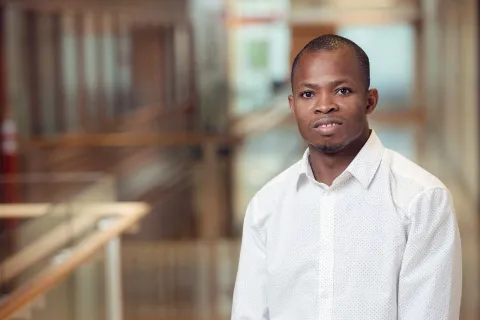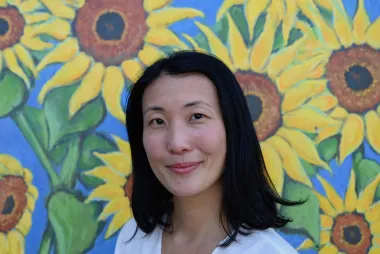"Determination is not always about beating a giant with a single strike – it is the day-to-day focus to do the tough things first!"

Dr. Abdul-Fatawu Abdulai
- Degree: Doctor of Philosophy in Nursing
- Grad year: 2022
- Program:
- Campus: Vancouver
I am an assistant professor at the University of British Columbia School of Nursing, Vancouver. My program of research seeks to explore how digital health technologies can be leveraged to address inequities in sexual and reproductive health access for marginalized populations. Prior to starting my current position, I was a Ph.D. student in the same school, a teaching assistant and a research assistant in multiple projects both within and outside the school of nursing. I was born and raised in Naaha, a small community in the Wa West District, Upper West Region, Ghana. After obtaining my BSN from the University of Ghana, I worked in a number of roles including an Intensive Care Unit nurse, a nurse leader in a district health center, and a call center nurse, all in Ghana. Intrigued with the use of information technologies in healthcare, I later obtained a master's degree in eHealth and informatics, and subsequently a Ph.D. in nursing informatics at the University of British Columbia. As part of my Ph.D. training, I took an interdisciplinary course in UBC’s Designing for People program (DFP) where I learned to transcend nursing disciplinary boundaries by applying creativity that connects digital technologies with patients' emotional concerns related to sexual health.
What has made your time at UBC memorable?
The most memorable part of my UBC experience was the opportunity to work with people from different departments. As a grad research assistant, I worked with several research teams including the endometriosis and pelvic pain research team, the contraception and abortion research team, and the Designing for People program. The experiences from working with interdisciplinary teams expanded my intellectual and intercultural horizons and granted me the opportunity to integrate my knowledge of nursing into other disciplines like human-computer interaction. For a person coming from a low-income region in the global south, settling in Vancouver as an international student, getting adjusted to the busy academic schedule, and maintaining a work/family balance opened up a whole new set of challenges. I must emphasize that the Ghanaian community I met at UBC made my stay in Vancouver a memorable one. We basically created a Ghanaian community in Vancouver and that was super helpful during the lockdown period.
What advice would you give a student entering your degree program?
I want to advise potential students to choose research topics that keep them motivated. You should also take feedback not as a criticism of your work but as an attempt to make you improve. While you keep working on your project, try to expand and diversify your connections beyond the people in your domain. We are living in an ever-changing world and having a little bit of knowledge on other topics that do not completely align with your field could prove helpful in the real world. Finally, try to seek out opportunities that allow you to work with other teams whose research is related to your work.
Many students have said that having role models related to their identity is important.
As a black student, I realized an inadequate representation of black faculty, especially black male faculty members across schools of nursing in Canada. Having come to this realization, I see my identity as a strength, thus propelling me into excellence and continually looking for opportunities to chart a new path. I believe that being successful will inspire other students with similar identities to aspire to greater heights. The inclusive and congenial environment at the School of Nursing made my experiences phenomenal. I received the maximum support from faculty and peers in ways I never imagined.

